Plenary speakers - EuropaCat2025
Plenary speakers
We are pleased to announce the plenary speakers at EuropaCat 2025:
Francois Jérôme
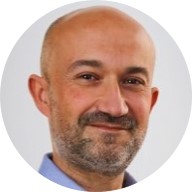
Research director at National Centre for Scientific Research (CNRS),
Poitiers, France
Recipient of Francois-Gault-Lectureship 2023
Title of lecture: Catalysis in biomass conversion: between promise and feasibility
François Jérôme is a catalysis specialist at the forefront of developments in sustainable chemistry, where using biomass is a strategic focus. His work is based on the use of physical agents (electric fields, shock waves, ultrasound waves) to trigger reactions that transform plant sugar into chemicals: surfactants, solvents, monomers, and more – and in doing so, avoids relying on chemical activation.
To accelerate the introduction of innovative products to the market, François Jérôme has been working with the Solvay Group since 2014, and also with SMEs such as ARD, the FCBA and Seprosys. As a sign of how robust the connection with Solvay is, since 2019, his team1 has been the “mirror site” for the international CNRS-Solvay Catalysis Laboratory, located in Shanghai (China). As he puts it, “To develop sustainable chemistry we must build strong links between scientists, the chemical industry and society”. To contribute to that, François Jérôme created the CNRS research federation “Increase” in 2015. It brings together eight laboratories and many manufacturers. François Jérôme also initiated the International Symposium on Green Chemistry, which has become an international conference of note.
Núria López
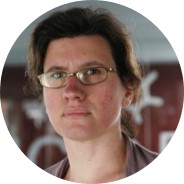
Professor of Chemistry at Institute of Chemical Research of Catalonia (ICIQ),
Tarragona, Spain
Title of lecture: Dynamics in Catalytic materials
Núria López and her research group focus on theoretical research in heterogeneous photo-electro-catalysis. She looks to design more efficient, selective and sustainable materials for heterogeneous catalysis, with a focus in improving selectivity and gold catalysis. She has used heterogeneous catalysis to develop new materials for artificial sweeteners, using renewable and low-cost products such as arabinose. She has shown that it is possible to rearrange sugar atoms using a molybdenum catalyst and a ruthenium catalysed hydrogenation step.
Her research group makes use of atomistic simulations using the Barcelona Supercomputing Center to understand the fundamental mechanisms that underpin heterogeneous catalysis. López has performed computational studies to determine the materials and experimental conditions that can improve the efficiency of water electrolysers; devices used for water splitting. She has also contributed to software development: Solvent contributions for VASP, Kinetic Monte-Carlo code, and the repository ioChem-BD, a computational catalysis database.
Prof. Núria López graduated with a degree in Chemistry and earned her PhD in Theoretical Chemistry at the University of Barcelona, Spain (1995). As a postdoctoral researcher, she joined the Center for Atomic-scale Materials Physics led by Prof. Jens K. Nørskov (Denmark). In 2005, she started her independent career at ICIQ and in 2015 she was awarded a “Prize for Excellence” by the Real Sociedad Española de Química (RSEQ). She has collaborated with several industries in Europe to leverage atomistic modelling, participated in 9 EU projects, and served in several committees in the European Union, including the most important supercomputing initiatives in Europe.
Jan-Dierk Grunwaldt
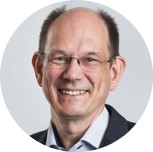
Professor and director at the Institute for Chemical Technology and Polymer Chemistry, Karlsruher Institute of Technology (KIT),
Karlsruhe, Germany
Title of lecture: Dynamics in Catalysis: From the atomic structure to the reactor scale
Grunwaldt's group's research areas range from preparation, testing to in-depth characterization of catalysts and electrocatalysts. Applications embrace emission control, chemical energy storage, power-to-X processes, the use of renewable resources, selective oxidation reactions, and fine chemistry using innovative solvents. Rational design using especially in situ & operando characterization and high-output testing are be combined.
Jan-Dierk Grunwaldt graduated in Chemistry (1993) at Hamburg University and got his Ph.D. degree from the Department of Technical Chemistry at the ETH Zürich, Switzerland (1998). He then joined Haldor Topsøe A/S in Denmark as a project manager for three years. From 2001 to 2007 he worked as lecturer and senior scientist at the Institute of Chemical and Bioengineering, ETH Zürich. before he became a full professor at the Department of Chemical and Biochemical Engineeering, DTU, “The Haldor Topsøe Chair in Catalysis and Chemical Engineering”, Denmark for two years. Since 2010 he has been a full professor and director at the Institute for Chemical Technology and Polymer Chemistry, Karlsruher Institute of Technology (KIT), Germany.
Grunwaldt has received several awards, among them Dale Sayers Award of the International XAFS Society (IXS) (2006) and he became Karl-Winnacker-Stipendiat awarded by the Aventis Foundation in recognition of the scientific achievements in supercritical fluids, in situ characterization and exhaust gas catalysis, Frankfurt (2007).
Bert M. Weckhuysen

Distinguished University Professor of Utrecht University, The Netherlands
Recipient of the Michel Boudart Award for the Advancement of Catalysis 2025
Title of lecture: Spatial and Temporal Exploration of Heterogeneous Catalysts with Operando Spectroscopy
Núria López and her research group focus on theoretical research in heterogeneous photo-electro-catalysis. She looks to design more efficient, selective and sustainable materials for heterogeneous catalysis, with a focus in improving selectivity and gold catalysis. She has used heterogeneous catalysis to develop new materials for artificial sweeteners, using renewable and low-cost products such as arabinose. She has shown that it is possible to rearrange sugar atoms using a molybdenum catalyst and a ruthenium catalysed hydrogenation step.
Her research group makes use of atomistic simulations using the Barcelona Supercomputing Center to understand the fundamental mechanisms that underpin heterogeneous catalysis. López has performed computational studies to determine the materials and experimental conditions that can improve the efficiency of water electrolysers; devices used for water splitting. She has also contributed to software development: Solvent contributions for VASP, Kinetic Monte-Carlo code, and the repository ioChem-BD, a computational catalysis database.
Prof. Núria López graduated with a degree in Chemistry and earned her PhD in Theoretical Chemistry at the University of Barcelona, Spain (1995). As a postdoctoral researcher, she joined the Center for Atomic-scale Materials Physics led by Prof. Jens K. Nørskov (Denmark). In 2005, she started her independent career at ICIQ and in 2015 she was awarded a “Prize for Excellence” by the Real Sociedad Española de Química (RSEQ). She has collaborated with several industries in Europe to leverage atomistic modelling, participated in 9 EU projects, and served in several committees in the European Union, including the most important supercomputing initiatives in Europe.
Andrzej Kotarba
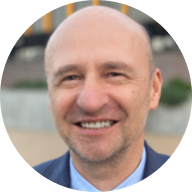
Professor of Chemistry, founder of Materials and Surface Chemistry Group,
Jagiellonian University, Krakow, Poland
Recipient of Francois-Gault-Lectureship 2023
Title of lecture: Beyond Conventional Routes in Catalyst Development: Turning Weaknesses into Strengths
Andrzej Kotarba's research focuses on processes at solid/gas and solid/liquid interfaces to design surfaces with specific properties and functionalities. This includes preparing and characterizing model and industrial catalysts, involving interdisciplinary studies in chemistry, materials science, and biochemistry. Professor Kotarba has co-authored over 200 scientific papers and 30 patents and serves as an editor for Applied Surface Science. In 2023, he received the EFCATS Francois Gault Lectureship Award, jointly with Francois Jerome, for his significant contributions to heterogeneous catalysis.
Andrzej Kotarba earned his PhD in 1993 and DSc in 2005, specializing in promotional effects in heterogeneous catalysis. Following postdoctoral research at Chalmers University of Technology, Sweden, and a post-rouge fellowship at Pierre and Marie Curie University, Paris VI, France, he established the Materials and Surface Chemistry Group at Jagiellonian University.
George Willis Huber
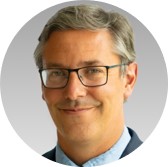
Richard Antoine Professor of Chemical Engineering,
University of Wisconsin-Madison. USA
Title of lecture: Inorganics and Catalytic Conversion of Biomass and Plastics
George Willis Huber is the Richard Antoine Professor of Chemical Engineering at University of Wisconsin-Madison. His research focus is the design of disruptive technologies for the upcycling of biomass, waste plastics and other waste resources. He has published over 250 papers, more than 25 patents, and received over 50,000 citations. He is co-founder of Anellotech, Pyran and Galasys.
Professor Huber is the executive director of the Center on Chemical Upcycling of Waste Plastics (CUWP) and the Center on Metal and Mineral Oxide Removal from Biomass (CMORE). Professor Huber has received visiting professorships from the Chinese Academy of Sciences (at Dalian Institute of Chemical Physics), from the Royal Netherlands Academy of Arts and Sciences and the ExxonMobil Visiting Chair Professor at National University of Singapore. George did a post-doctoral stay with Avelino Corma at the Technical Chemical Institute at the Polytechnical University of Valencia, Spain (UPV-CSIC). He obtained his Ph.D. in Chemical Engineering from University of Wisconsin-Madison (2005) under the direction of James Dumesic. He served a two-year volunteer mission for his church in Guatemala. He obtained his B.S. (1999) and M.S.(2000) degrees in Chemical Engineering from Brigham Young University.
Shannon S. Stahl

Professor of Chemistry, Steenbock Professor of Chemical Sciences at University of Wisconsin – Madison, USA
Recipient of Robert K. Grasselli Award for Catalysis 2025
Title of lecture: Managing the Oxygen Reduction Reaction to Support the Aerobic Oxidation of Organic Molecules
Professor Shannon S. Stahl is a world-renowned leader in oxidation catalysis whose pioneering research has transformed both the scientific understanding and industrial practice of aerobic oxidation. His groundbreaking work has produced field-defining contributions across pharmaceutical synthesis, biomass valorization, plastics upcycling, and electrocatalysis. Prof. Stahl’s development of safe, scalable aerobic oxidation methods has been widely adopted in the pharmaceutical industry, while his innovations in lignin depolymerization and plastic waste oxidation are now enabling sustainable pathways for bio-based chemicals and circular plastics. His research is marked by a rare combination of deep mechanistic insight, interdisciplinary breadth, and practical applicability, consistently bridging fundamental discovery with real-world impact. From organometallic catalysis to heterogeneous and electrochemical systems, Stahl’s work embodies the ideals of sustainable chemistry and stands as a benchmark for scalable, environmentally responsible catalysis.
His exceptional scientific leadership and transformative innovations make him uniquely deserving of the EFCATS Robert K. Grasselli Award for Catalysis., which aims to recognize outstanding theoretical and experimental contributions in the field of oxidation catalysis that advance our understanding and practice of catalysis during the last five years prior to the year the award is given.
Professor Stahl is educated with a B.S. 1992, from University of Illinois at Urbana-Champaign in 1992, a Ph.D. from California Institute of Technology in 1997, and was a NSF Postdoctoral Fellow at Massachusetts Institute of Technology, 1997-99
